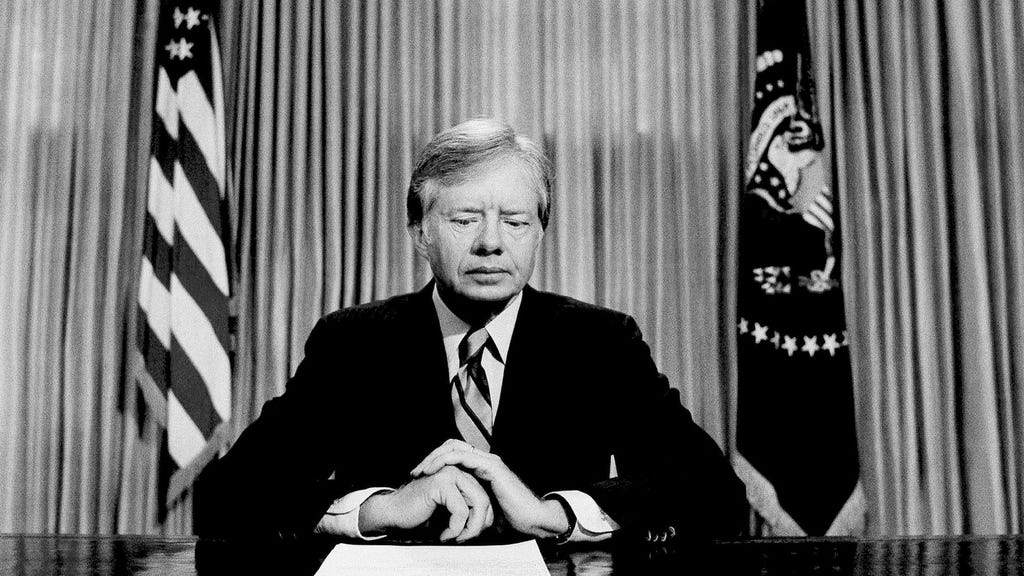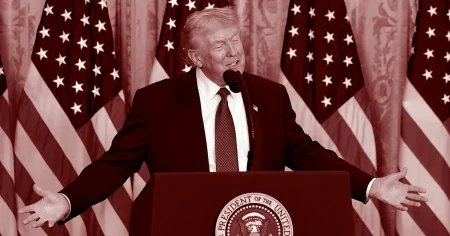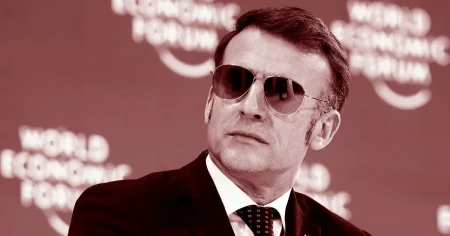This article from Dagens Nyheter, published on December 31, 2024, draws a parallel between the presidencies of Joe Biden and Jimmy Carter, suggesting that the reassessment of Carter’s legacy might offer solace to Biden. Both presidents, perceived as honorable men, faced significant economic challenges that overshadowed their terms. While Biden is currently viewed through the lens of inflation, the evolving perception of Carter’s post-presidency offers a potential roadmap for Biden’s own legacy.
Jimmy Carter, initially judged harshly for his handling of the economic crises of the late 1970s, has since been recognized for his extensive humanitarian work and advocacy for human rights. His post-presidency efforts through the Carter Center have earned him global respect and a Nobel Peace Prize. This transformation, from a president grappling with economic woes to an elder statesman revered for his commitment to peace and justice, provides a compelling narrative of redemption. The article implies that Biden, like Carter, might find his true legacy defined not by the economic struggles of his time, but by his actions and contributions after leaving office.
The comparison between Biden and Carter highlights the tendency to oversimplify presidential legacies based on immediate economic conditions. While economic performance undoubtedly plays a significant role in shaping public perception, it rarely encapsulates the full scope of a president’s impact. Factors such as international relations, social policy, and long-term societal shifts are often overlooked in the immediate aftermath of a presidency. The article argues for a more nuanced evaluation of presidential legacies, urging readers to consider the broader context and long-term consequences of a president’s actions.
The article suggests that Biden, like Carter, might find avenues to contribute meaningfully to society after leaving the White House. Carter’s dedication to diplomacy, human rights, and global health through the Carter Center provides a model for post-presidential engagement. Biden, with his long career in public service and deep understanding of international affairs, could potentially find similar opportunities to make a lasting impact. The article subtly suggests that Biden’s true legacy might be shaped by his actions beyond the confines of the presidency, offering a glimmer of hope amidst the current narrative of economic hardship.
Furthermore, the article subtly critiques the tendency to reduce a president’s legacy to a single defining issue. While inflation is undoubtedly a significant concern, it doesn’t encompass the entirety of Biden’s presidency. His efforts in areas such as climate change, infrastructure, and social justice, while perhaps overshadowed by economic anxieties, could have long-term positive consequences. The article encourages a more holistic view, reminding readers that presidential legacies are complex and multifaceted, extending far beyond the immediate economic landscape. It suggests that future generations might judge Biden, like Carter, on a broader range of accomplishments and contributions.
In conclusion, the article utilizes the evolving perception of Jimmy Carter’s presidency as a framework for understanding Joe Biden’s potential legacy. It emphasizes the limitations of evaluating presidents solely based on immediate economic conditions and highlights the possibility of post-presidential redemption through continued public service and global engagement. The comparison between Carter and Biden serves as a reminder that presidential legacies are complex and often require time and perspective to fully understand. It offers a message of hope, suggesting that Biden, despite the current economic challenges, has the potential to leave a lasting positive impact on the world.














